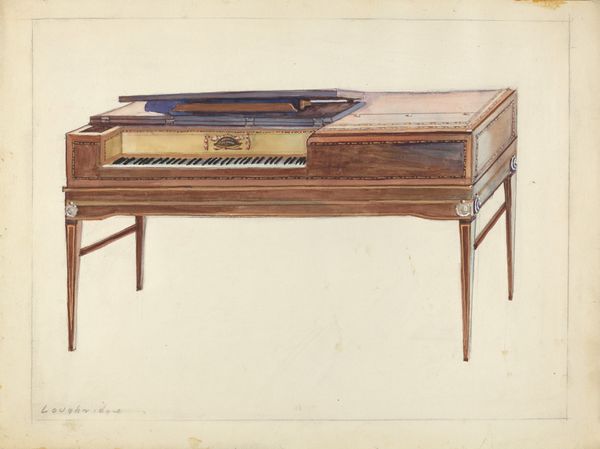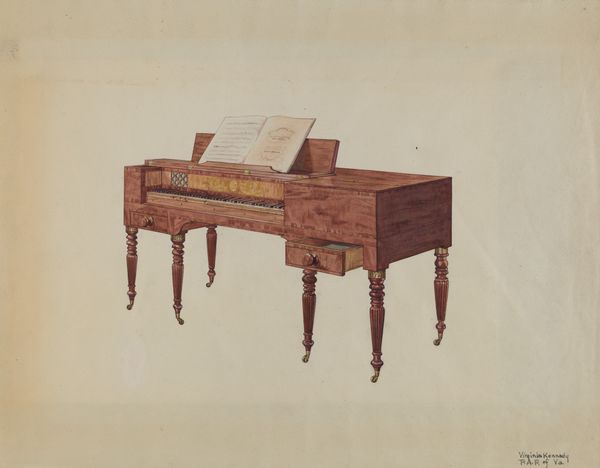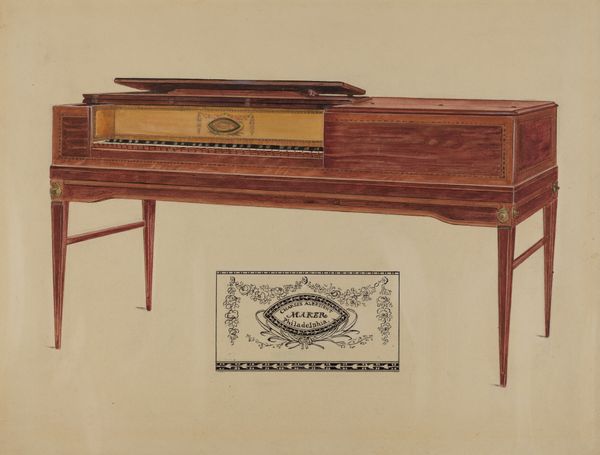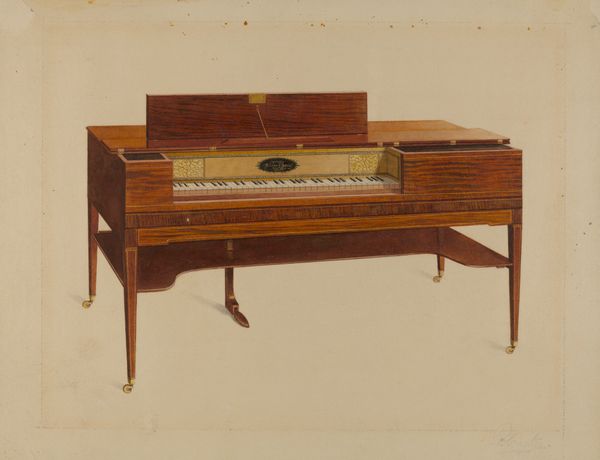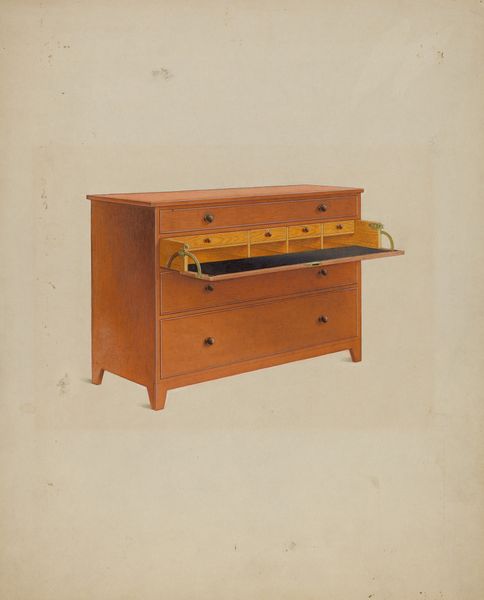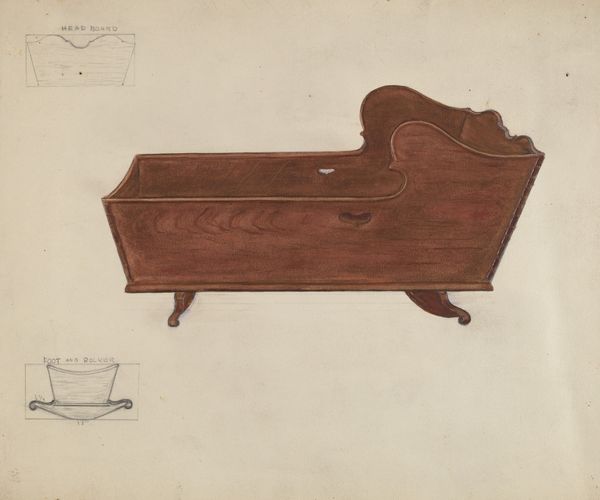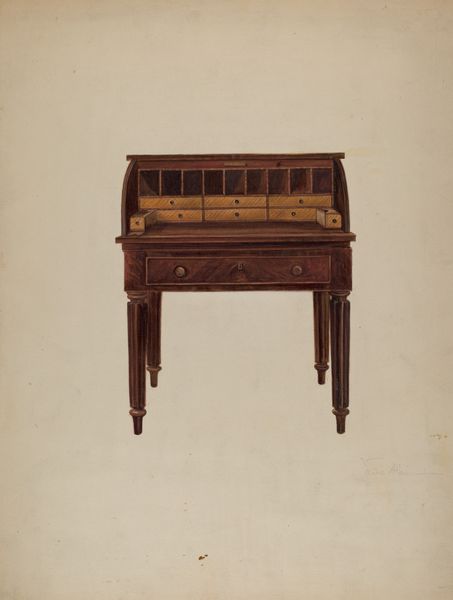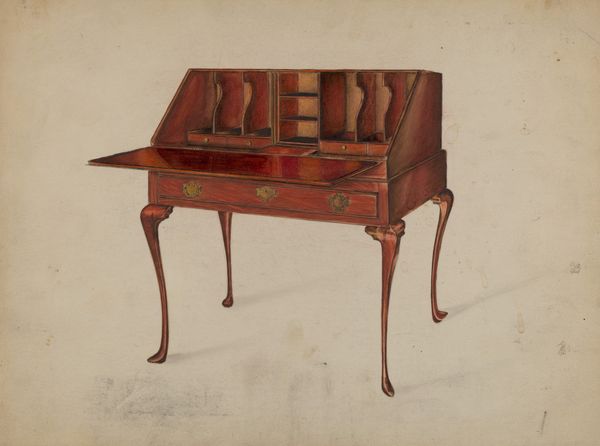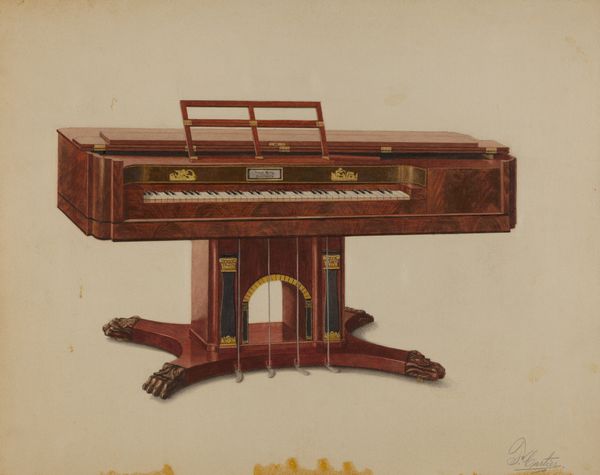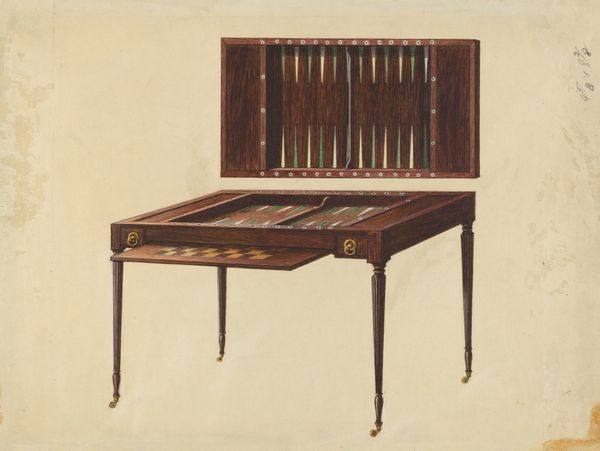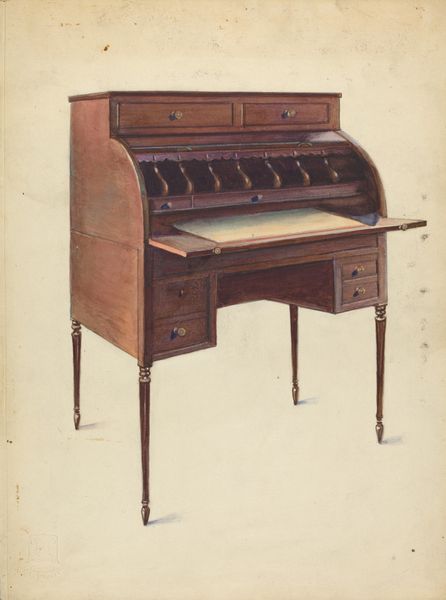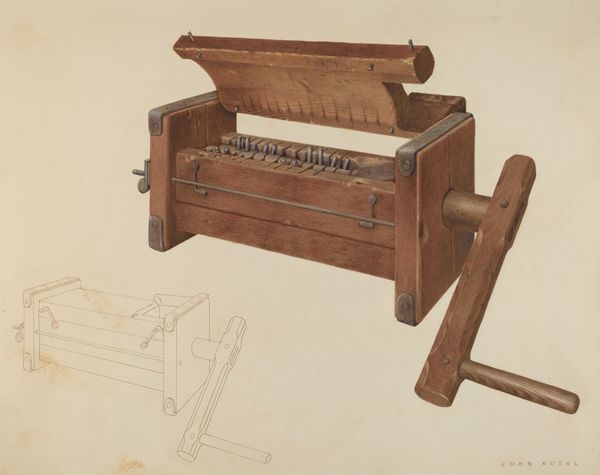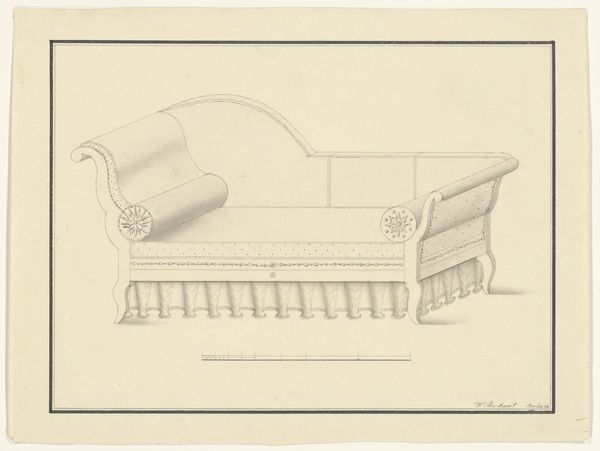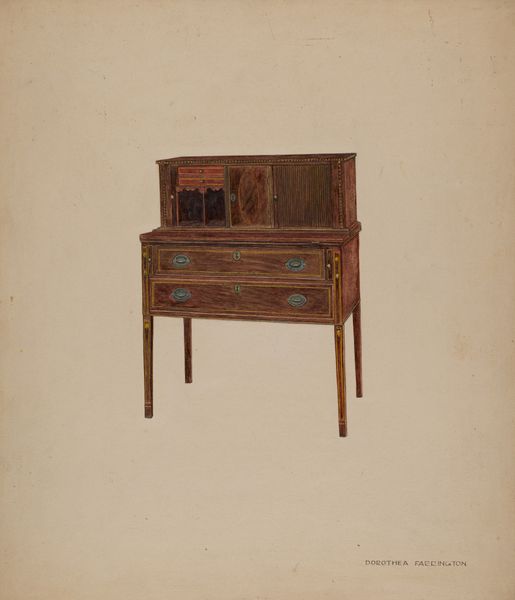
drawing, watercolor
#
drawing
#
watercolor
#
watercolour illustration
Dimensions: overall: 34.5 x 45.9 cm (13 9/16 x 18 1/16 in.) Original IAD Object: box: 11 5/8" long; 5 1/4" wide; 4 3/4" high; roller: 4 1/2" long; 3 3/4" wide; 2 1/2" long
Copyright: National Gallery of Art: CC0 1.0
Gene Luedke created this watercolor painting of a butter worker, a tool used in the late 19th and early 20th centuries, to process homemade butter. During this period, women were largely responsible for food production in the home. The butter worker symbolizes labor and domesticity, but also ingenuity. Consider the gendered division of labor which positioned women in the home. These women were essential to the family economy. The industrial revolution saw many processes, including food production, move outside the home to factories, altering gendered labor roles. Luedke's painting elevates an everyday object to a subject worthy of artistic attention, documenting the ingenuity of women in rural settings. The artwork may evoke a sense of nostalgia for a simpler time, but also prompts reflection on how labor, gender, and rural life intersect and have evolved over time. It encourages us to appreciate the tools of the past, and the hands that operated them.
Comments
No comments
Be the first to comment and join the conversation on the ultimate creative platform.
